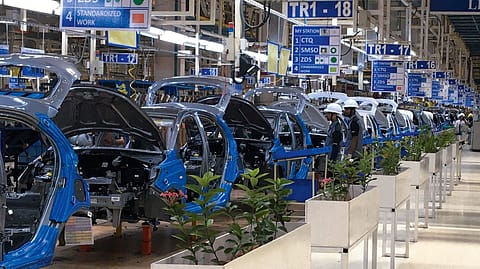ACMA welcomes long-standing demand for a uniform 18% GST rate on auto components
The uniform GST rate comes at a time when the industry is realigning amid the imposition of trade tariffs by the U.S., which accounted for 27% of auto components exports.

The Automotive Components Manufacturers Association (ACMA), the apex industry body of auto component manufacturers in India, has welcomed the landmark decision of the GST Council to bring all auto components under a uniform 18% GST slab.
“The rationalisation of GST to a uniform 18% across all auto components has been a long-standing recommendation of ACMA. This decisive step will curb the grey market, encourage the use of quality compliant components, ease compliance, and support MSMEs—thereby strengthening the global competitiveness and resilience of India’s $80.2 billion auto component industry,” Sharadha Suri Marwah, president, ACMA, said in a statement.
Marwah also added that ACMA has welcomed the GST council’s approval for faster export refund claims through the Indian Customs Electronic Gateway (ICEGATE) for smaller exporters, which will help clear pending shipping bills and significantly ease liquidity constraints.
The auto component industry is currently realigning itself in the aftermath of the retaliatory tariffs issued by the Trump administration. However, unlike garment exporters, the auto component industry has a reprieve from facing the 50% punitive tariffs across all components.
According to Vinnie Mehta, Director General of ACMA, auto components worth $6.6 billion were exported to the U.S. in 2024. Out of this, only $3.5 billion worth of exports will be levied a tariff rate of 27.5%, as announced in March 2025. This includes parts for light trucks and passenger vehicles. It is the components for heavy trucks, agricultural equipment, heavy trucks and other heavy machinery, that will face a 50% tariff.
The U.S. is a significant trade partner of the Indian auto components industry. In FY 2024-25, it accounted for 27% of India’s $22.9 billion in auto components exports and 7% of the $22.4 billion in auto components imports into India. “While this development presents near term headwinds, for Indian exporters, it also underscores the importance of enhancing our sector’s competitiveness, strengthening value addition, and exploring new and diversified markets,” Marwah had said earlier.
The GST rationalisation will significantly benefit the auto component industry, as the imposition of sweeping tariffs reinforces the importance of building greater self-reliance, enhancing domestic value addition, and accelerating innovation within the sector.